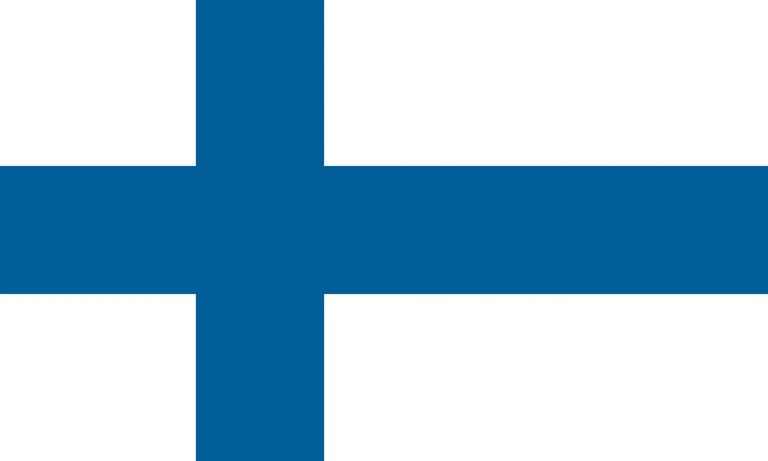Finland
From Wikipedia


The Republic of Finland, is a Nordic country in Northern Europe. It borders Sweden to the northwest, Norway to the north, and Russia to the east, with the Gulf of Bothnia to the west and the Gulf of Finland to the south, opposite Estonia. Finland covers a total area of 338,145 square kilometres (130,559 sq mi), including a land area of 303,815 square kilometres (117,304 sq mi), and has a population of 5.6 million. Helsinki is the capital and largest city. The vast majority of the population are ethnic Finns. The official languages are Finnish and Swedish; 84.9 percent of the population speak the first as their mother tongue and 5.1 percent the latter. Finland's climate varies from humid continental in the south to boreal in the north. The land cover is predominantly boreal forest biome, with more than 180,000 recorded lakes.
Finland was first settled around 9000 BC after the last Ice Age. During the Stone Age, various cultures emerged, distinguished by different styles of ceramics. The Bronze Age and Iron Ages were marked by contacts with other cultures in Fennoscandia and the Baltic region. From the late 13th century, Finland became part of Sweden as a result of the Northern Crusades. In 1809, as a result of the Finnish War, Finland was captured from Sweden and became an autonomous grand duchy within the Russian Empire. During this period, Finnish art flourished and the independence movement began to take hold. Finland became the first territory in Europe to grant universal suffrage in 1906, and the first in the world to give all adult citizens the right to run for public office. Following the Russian Revolution of 1917, Finland declared its independence. A civil war was fought in Finland the following year, with the Whites emerging victorious. Finland's status as a republic was confirmed in 1919. During World War II, Finland fought against the Soviet Union in the Winter War and the Continuation War, and later against Nazi Germany in the Lapland War. As a result, it lost parts of its territory but retained its independence.
Finland remained a largely agricultural country until the 1950s. After World War II, it industrialised quickly and established an advanced economy, with a welfare state built on the Nordic model. This allowed the country to experience overall prosperity and high per capita income. During the Cold War, Finland officially embraced a policy of neutrality. Since then, it has become a member of the European Union in 1995, the Eurozone in 1999, and NATO in 2023. Finland is a member of various international organisations, such as the Nordic Council, the Schengen Area, and the Organisation for Economic Co-operation and Development (OECD). The nation performs exceedingly well in national performance metrics, including education, economic competitiveness, civil liberties, quality of life, and human development.
Nassouh GSPI
Assessing global strength through various metrics.
contact us
gspi@nassouh.com
© 2025. Nassouh, All rights reserved.
